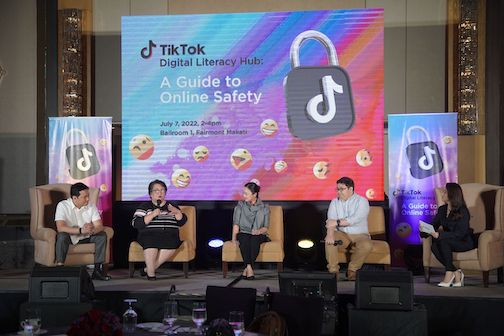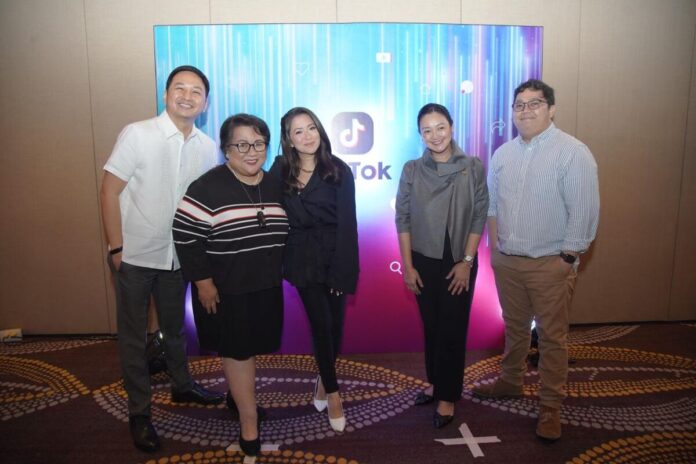TikTok, the leading short-form video platform, continued its fight against harmful misinformation with a livestream titled TikTok Digital Literacy Hub: A Guide to Online Safety.
During the media launch, streamed via TikTok Live, TikTok reiterated its continued commitment to helping users navigate the digital environment safely through its in-app Digital Literacy Hub, its portal containing educational information on mental well-being, cyber wellness, minor safety, potentially dangerous online challenges, and other digital literacy topics.
Panelists included TikTok head of Public Policy, the Philippines, Kristoffer Rada; TikTok content creator Mona Magno-Veluz (Mighty Magulang); YouthLed chief of party Ching Jorge; and Internews senior program officer Gian Libot. Celebrity Antoinette Taus hosted the event.
Anchored by the hashtag #thinkb4youdo, the hub promotes safe online behavior and encourages everyone to think twice before doing anything on the Internet or before taking on dangerous challenges.

“We wanted to reiterate TikTok’s commitment to digital literacy not just in the Philippines, but also across South East Asia. We invited our partners today because we realized that this problem cannot be solved by one sector alone. It really needs a holistic approach, a multi-pronged approach for us to get to a solution. We all have the power within ourselves to be the initial gatekeepers of what could be fake news. We are embarking on that first step of this journey towards critical thinking and digital literacy,” said Kristoffer Rada, TikTok head of policy, the Philippines.
“In YouthLed, we integrate digital literacy with our civic education program. We consider digital literacy as an important 21st-century education skill. Together with democratic values, these can help the youth navigate online democratic spaces and participate effectively,” said Ching Jorge, chief of party, Youth Leadership for Democracy (YouthLed).
TikTok’s initiative in the Philippines and across Southeast Asia also hosts digital literacy tips that can help users make smart choices. The tips come in the form of videos, quizzes, and scenario-based learning content that users can easily relate to.
No to misinformation
Users were also encouraged to be critical of the information they read on social media and on the Internet. TikTok’s Digital Literacy Hub provides tools that will help users to identify and report inappropriate materials, platforms that spread false information, and fake news.
“A huge portion of digital literacy has been focused on how to use stuff, how to be able to navigate a specific platform – and that’s well and good. But the missing ingredient there is to introduce some critical thinking within consumption. Because at the end of the day, if you are exposed to false information, the best person to be able to check that information is going to be you, the consumer,” said Gian Libot, senior program officer, Internews.
“On the platform itself, we are seeing a lot NGOs (non-government organizations), a lot of good brands, harnessing the power of short-form videos. There are good causes that are going on this platform. #EduWOW of TikTok Philippines has two billion views on its educational content. So it is a wrong assumption that everything on TikTok is not correct. In fact, brands and organizations like these have understood and given importance to the power of short-form video,” said TikTok content creator Mona Magno-Veluz (Mighty Magulang).
